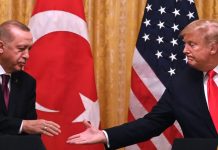India at the UN Security Council recently supported the Palestinian cause amid the relentless bombardment of Gaza by Israeli warplanes. However, it was careful not to upset the sensitivities of ‘key-ally Israel by not condemning the disproportionate airstrikes by the IDF on the civilian areas in Gaza.
The statement by India’s permanent representative to the United Nations TS Tirumurti was viewed as a delicate balancing act, which affirmed support for the Palestinian cause and a two-state solution while refrained from condemning Israel.
There has been a phenomenal shift in India’s foreign policy concerning the Israel-Palestine issue under the Narendra Modi government. India has seen its closeness grow towards Israel in recent years on the back of strong military ties and defense cooperation.
India’s Support For Palestine
India has traditionally been an ardent supporter of the Palestinian cause ever since the time of Mahatma Gandhi and the two countries have a history of the strong bilateral relationship.
India was the first non-Arab state to recognize Palestine Liberation Organization (PLO) as the sole and legitimate representative of the Palestinian people in 1974, and one of the first countries to recognize the state of Palestine in 1988.
Even in the multilateral fora, India played a key role in gathering support for the Palestinians, and co-sponsored the draft resolution on “the right of Palestinians to self-determination” during the 53rd session of the UN General Assembly and voted in favor of it.
India even supported the Bandung Declaration on Palestine at the Asian African Commemorative Conference in April 2015. When it was decided to install a Palestinian flag at UN premises in September 2015, India wholeheartedly supported the move.
India, Israel Relations
Israel, too, had been trying to grow its ties with India ever since the 1971 war, when, according to a book, 1971, by scholar Srinath Raghavan, prime minister Golda Meir offered to help India by supplying arms in return for establishing diplomatic ties with the Jewish state.
Although the ties could never be established until much later, Israel again helped India in the 1999 Kargil war in which their weapons proved decisive against disguised Pakistani intruders who had seized critical heights.
Since then, India and Israel have gradually enhanced their relationship, with the latter being an important defense partner to the Indian armed forces.
Now under the BJP government, the ties between the two nations are at an all-time high, relationship-driven by many other factors, including the rise of nationalist sentiment in India.
Can India Mediate Between Israel and Palestine
Taking note of the illustrious relationship India has with both Palestine and Israel, Palestine’s envoy to India Adnan Mohammad Jaber Abualhayjaa has proposed that India take the initiative to start the peace process between the two rivals.
Talking to BBC, he said that India’s involvement in the peace process will not only be in the interest of the Palestinians but will also be good for India itself.
“India has a lot of interest in West Asia, so peace in this region will also be in India’s interest,” he added.
Calm was restored to the region after the announcement of the ceasefire between Hamas and Israel after more than ten days of intense fighting, where both sides launched rockets and missiles in each other’s territory.
India has not given any indication on whether it intends to mediate between Palestine and the Jewish State and the statements issued by the government have been balanced, calling for the establishment of peace, while upholding the right to exist for both sides.
“I don’t know if they (India) are ready or not, but I have asked them to be ready,” Abualhayjaa told the BBC. He said that he hoped the major world powers will sit together to seek out a permanent solution to the conflict that has taken innumerable lives.
This is not the first time that the talk of India acting as a mediator in the Middle-East conflict has gained ground.
In March 2020, the UN had asked India to mediate between the two sides to resolve the protracted conflict in the region. A UN delegation had visited India to start the deliberations with Indian authorities in that direction.
Will India Be A Good Mediator?
India can play an instrumental role in the Palestine-Israel issue for a number of reasons.
The US and Russia have tried for decades but failed to negotiate a peace deal. The US is not trusted by the Arab nations since it openly supports Israel and frequently vetoes any resolution condemning the actions of Israeli forces at the UN.
All the resolutions called against Israel at the UN have been vetoed primarily by the United States which results in a state of stalemate.
On the contrary, India will likely be viewed as independent and non-partisan, as it has a history of cooperation and friendship with Palestine and, at the same time, strong military ties with Israel.
As such, experts say, the country could be seen as a legitimate party to act as a mediator between the two archrivals.
Additionally, India follows a path of de-hyphenation policy with Israel – meaning it has an independent relationship with the Jewish state, unaffected by its relationship with other countries.
India has good relations with Iran too, which has been an ardent supporter of Hamas, which has again been an independent relationship.
Experts say that India could gain a lot if a successful resolution to the greatest issue facing the world is pushed through. The country’s standing in global politics will see a historic rise and its stature at the global forums will be positively influenced.
Needless to say, a safe and peaceful Middle-East will help bring prosperity to the Indian economy, not only helping smooth transportation of oil and other exports through the seas but creating a safe living environment for millions of Indians working in the region.




